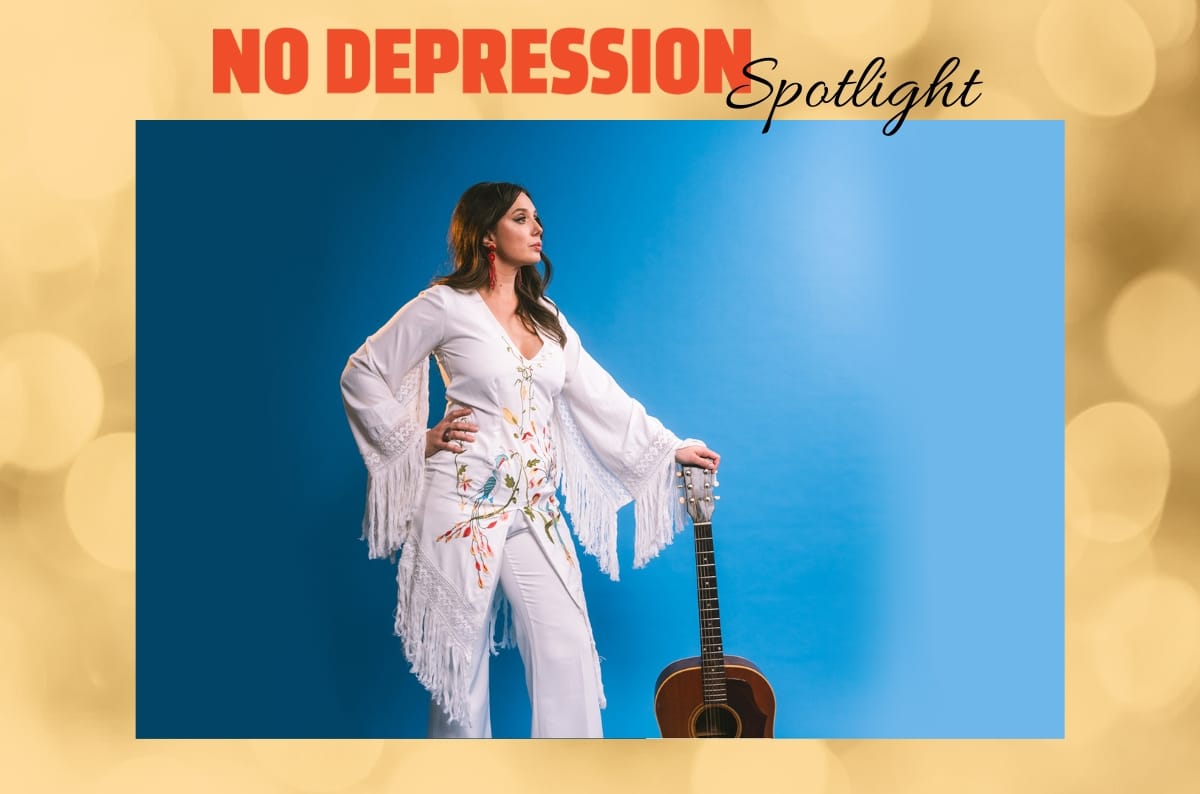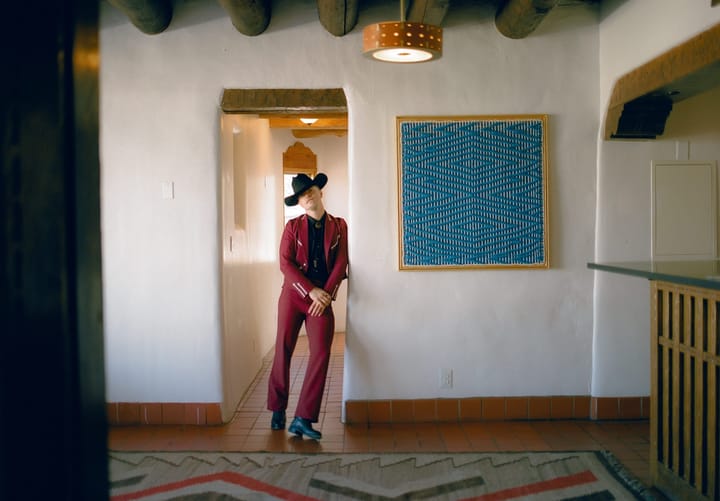Editor's Note: Kristina Murray is No Depression's Spotlight Artist for May 2025. Learn more about her life and new album, Little Blue, which was released May 9, in this feature, and keep an eye out for more all month long.
Singer-songwriter Kristina Murray’s music conveys a realism that derives from life experience. Murray’s third studio album, Little Blue, is a paean to hard-won perspective, perseverance, and resilience forged by struggle. Still, more contemplative than gloomy, the album’s nine tracks dwell on faltering, rather than failing, and the quintessential act of coming out the other side.
“It's so part of being a human is having to go through the sad shit to understand that there is a lot of great shit in life, and that those things are made better because you've seen the low points,” Murray says.
Though it’s been seven years since her last studio album, Murray picks up right where she left off, beginning Little Blue as if mid-sentence: “And your love came in like a rain that never stopped / I had always been the kind that couldn’t get got / But baby you got me.” The time elapsed has done Murray good. In the intervening years since 2018’s critically-acclaimed sophomore album, Southern Ambrosia, Murray and the world have changed — a global pandemic, hyper fixation on streaming and social media stats, and the boom of Americana music (in all the flaws that term contains). Murray emerges grounded and with a lot to say.
“Two of my favorite songwriters, Lucinda Williams and Gillian Welch, both had about a six or seven year period between two records,” Murray points out. “At the end of the day, good things take a lot of time and a lot of hard work and dedication.”
Little Blue, Murray’s debut with Normaltown/New West Records, gets its name from the album’s final track, a reflection on life’s fragility. It was also inspired by a quote from naturalist Sylvia Earle, which Murray discovered a few years ago and whose profundity hit her hard at just the right moment: “I wish everyone could just realize how special it is to be alive on this little blue speck in the universe. It's a miracle that life exists at all and that we have a piece of time that is ours.”
Says Murray of that quote, “It really was so profound. …My experience with death in my own life is very much like, ‘We only have this period of consciousness for maybe, if you're lucky, 100 years, right?’ And the fact that I get to exist in the same 100 years that rock and roll was birthed was so amazing to me.”




![The Art of the Cover Song [ESSAY]](/content/images/size/w720/2026/01/DAVID-HUCKFELT--4--by-Graham-Tolbert-1.jpg)